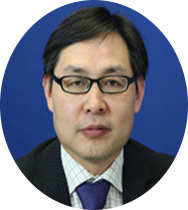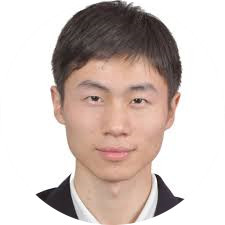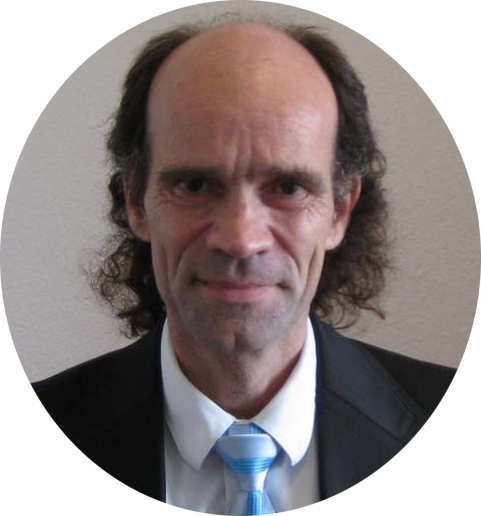
Prof. Zhijun Peng
University of Lincoln, Lincoln, UK
Jun Peng is a Professor of Sustainable Energy Engineering in University of Lincoln, UK. He received his PhD degree from National Engine Combustion Lab, Tianjin University in 1996. After four years working experiences as research fellow in Brunel University and two years as senior development engineer in Ford Motor Company, he held the position of Lecturer since 2004 and Senior Lecture since 2007 in the University of Sussex. Prior to his current appointment, he worked as Professor in Engineering in University of Bedfordshire. Jun Peng’s research interest lies in thermodynamics, fluid dynamics and combustion with applications on fuel cells and IC engines. His recent research works have contributed to sustainable vehicle powertrain, non-carbon water transport technology, etc. Jun Peng is a Fellow of IMechE, Fellow of RSC (Royal Society of Chemistry). He is the Associate Editor of IET journal of Electronics Letters (SCI indexed) and an Editorial Board member of Johnson Matthey Technology Review (SCI indexed).
Co-speaker:

Assoc. Prof. Zhi Liu
Tianjin University, China
Zhi Liu is an associate professor at the State Key Laboratory of Engine Research at Tianjin University. He obtained his bachelor degree from Huazhong University of Science and Technology in 2012. Then, he went to the Department of Thermo-Fluid Science and Engineering of the Ministry of Education at Xi'an Jiaotong University for further study, and he received his Ph.D degree in 2019. His research interests encompass the mechanism of heat and mass transfer and electrochemical reactions in PEMFC and MFC.
Speech title "Recent Development on Fuel Cell Technology and Prospect of Increased Application on Vehicles"
Abstract-As fuel cell powered electric vehicles can directly apply those hydrogen produced from surplus wind energy, they provide a substantial advantage on energy efficiency than battery electric vehicles that are normally charged from mixed electricity of national grids. By analysing and comparing FCV’s and BEV’s life cycle efficiency and carbon emissions and reviewing recent development of fuel cell technology, this talk will provide insight into potentials to increase fuel cell applications in various vehicles for enhancing car emission reduction. Possible technical barriers that influence fuel cell vehicle’s operating performances and energy efficiency will also be discussed.

Prof. Hartmut Hinz
Frankfurt University of Applied Sciences, Germany
H. Hinz received the diploma degree in electrical engineering
from the University of Applied Sciences, Aachen and the Ruhr
University, Bochum in Germany in the years 1990 and 1994
respectively. He received the Ph.D. degree from the Technical
University, Darmstadt in Germany in 2000.
Between 1999 and 2009 he was with General Motors Fuel Cell
Activities, most recently as project leader for the development of
high voltage electrical systems for concept fuel cell. In 2009 he
was appointed as a Professor for power electronics at the University
of Applied Sciences, Frankfurt in Germany. Since 2011 he is the
program director of the study program electrical engineering. Since
2010 he is a visiting Professor (flying faculty) at the
Vietnamese-German University in Ho-Chi-Minh City, Vietnam. His
research interests are in the areas power electronics, modeling and
decentralized power generation.
Speech title "Power Electronics for Power-to-Gas Converters in Hydrogen Production Applications"
Abstract-As the global energy sector transitions to sustainable and decarbonized solutions, hydrogen will gain increasing importance as an energy carrier. One key technology for efficient hydrogen production through water electrolysis is the integration of advanced power electronics in power-to-gas (P2G) converters. This presentation will focus on the crucial role of power electronics for high-performance, reliable and grid-friendly hydrogen production. The keynote discusses the evolving portfolio of P2G technologies, emphasizing the interconnection of electrolyzers where power electronics must provide precise control, high efficiency and dynamic response over a wide operating range. Industrial converter topologies are examined that address major challenges such as harmonic reduction, AC-DC and DC-DC conversion, modular scalability and grid code compliance. In conclusion, the presentation will look at future-oriented power electronics solutions, including the utilization of wide-bandgap semiconductors.

Prof. Ahmet Selim Dalkilic
Yildiz Technical University in Istanbul, Turkey
"Ahmet Selim Dalkilic obtained his B.S., M.S., and Ph.D. degrees from Yildiz Technical University in Istanbul, Turkey. Following his Ph.D. work on in-tube condensation phenomena at smooth and corrugated tubes during turbulent flow, he conducted his post-Ph.D. work at King Mongkut's University of Technology Thonburi, Bangkok, Thailand, between 2006 and 2007. This work was a continuation of his PhD work on in-tube condensation phenomena in smooth and microfin tubes during laminar flow. The ScholarGPS website ranks him among the top 100 researchers on condensation and 644 researchers on heat transfer worldwide. Stanford University also ranks him among the top 2% of most successful scientists. He served as a member of the Elsevier-sponsored Innovation Explorer for Scientific Researchers to evaluate Elsevier journals' websites from 2009 to 2012. Currently, he holds a full professor position in the Mechanical Engineering Department and serves as the editor-in-chief of the Journal of Thermal Engineering, a Q3 journal with ESCI and SCOPUS indexes, which he founded in 2014. Since 2021, he has also served as the editor-in-chief of the Sigma Journal of Engineering and Natural Sciences, maintaining the same qualifications. His research covers a wide area of thermal sciences, especially looking at how heat moves in systems like air conditioning and heating, as well as in devices that transfer heat, such as special tubes and channels during different types of fluid flow. Recently, his research group has been working on technologies that use CFD methods to simulate heat transfer problems, machine learning for heat transfer applications, nanoparticles to find their physical properties, conditioning for stability, and flows in improved tubes or channels. He has received several international awards from conferences and innovation exhibitions for his contribution in the field of heat transfer and two-phase flows. Every year, his university awards him for being among the most successful researchers. In addition, he has been one of the most successful academicians in his faculty for more than 15 years. Moreover, he has organized many international conferences with broad participation as their chairman or co-chairman since 2015 and authored or co-authored more than 350 reviewed publications."